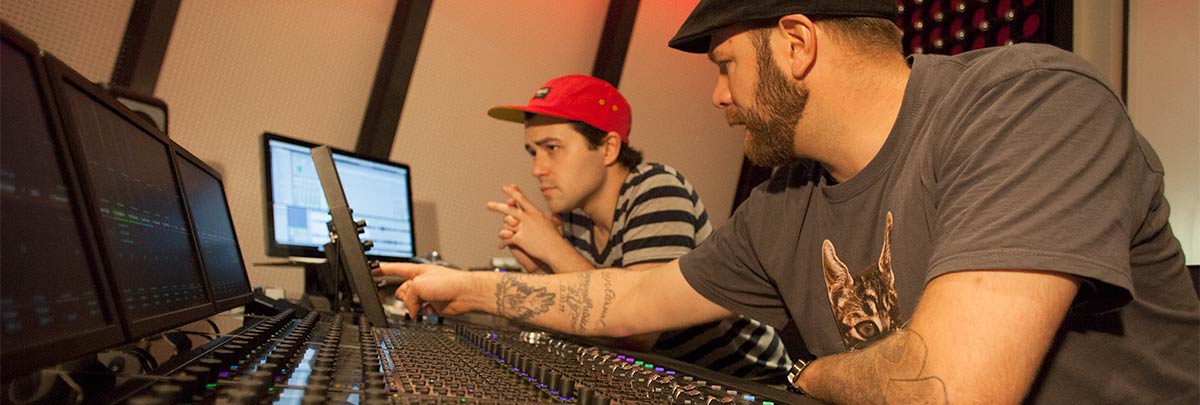Please fill out the following information, and RRFC Admissions will contact you to discuss our program offerings:
Issue #55
by L. Swift and Jeff McQ


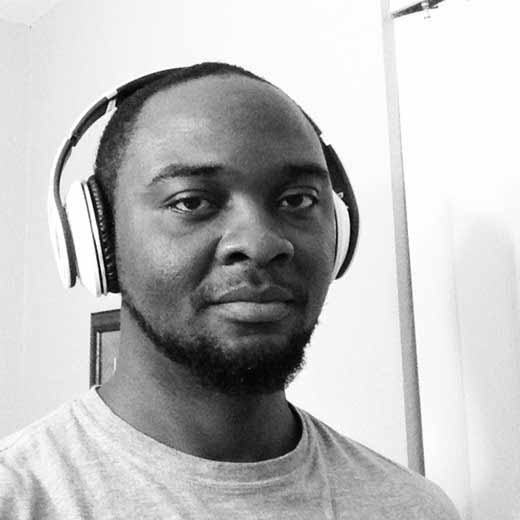 “I had no idea that I would end up doing this in my life,” says Film Connection graduate Ofu Obekpa (Atlanta, GA) about his decision to become a filmmaker. “I went to traditional school and had a business degree in marketing. Look at me, I’m just doing it…Why not just do what you love to do?”
It turns out that artistry was in Ofu’s roots: “My parents were theatre actors,” he says. Although he wasn’t expecting it, it seemed a natural progression for him to want a more creative career after college. So Ofu began exploring film as a career, and found himself interested in the post-production side—visual effects and editing. “I am very visual and very internal sometimes,” he says. “Putting the pieces of the puzzle together and just creating in my own space and time…I like that a lot.”
That’s when his plans hit a snag. “[I] actually got accepted to grad school for film,” says Ofu. “The tuition was just enormous…I was like ‘You know what? I would use that [money] to shoot a film or something!’ But I needed to upgrade my skills.”
A web search landed Ofu at the Film Connection website. “The one-on-one concentration with a mentor and the real life hand-in-hand experience, that really caught my attention,” he says. “I did my research and I was like, ‘Wow, it’s a great opportunity.’”
“I had no idea that I would end up doing this in my life,” says Film Connection graduate Ofu Obekpa (Atlanta, GA) about his decision to become a filmmaker. “I went to traditional school and had a business degree in marketing. Look at me, I’m just doing it…Why not just do what you love to do?”
It turns out that artistry was in Ofu’s roots: “My parents were theatre actors,” he says. Although he wasn’t expecting it, it seemed a natural progression for him to want a more creative career after college. So Ofu began exploring film as a career, and found himself interested in the post-production side—visual effects and editing. “I am very visual and very internal sometimes,” he says. “Putting the pieces of the puzzle together and just creating in my own space and time…I like that a lot.”
That’s when his plans hit a snag. “[I] actually got accepted to grad school for film,” says Ofu. “The tuition was just enormous…I was like ‘You know what? I would use that [money] to shoot a film or something!’ But I needed to upgrade my skills.”
A web search landed Ofu at the Film Connection website. “The one-on-one concentration with a mentor and the real life hand-in-hand experience, that really caught my attention,” he says. “I did my research and I was like, ‘Wow, it’s a great opportunity.’”
 The Film Connection placed Ofu as an apprentice with Rite Media in Atlanta, and to tailor his apprenticeship to his interests in post-production, Ofu says he worked with two mentors there: Steve Carmichael (for the basics of film production and camera work), and Kevin Christopher for editing, post-production, and visual effects. For Ofu, the experience of learning on-the-job could not have been a better fit, because the combination of doing the work himself with the guidance of a mentor made him take ownership of his training and his career.
“The thing about Kevin is he believes in you doing it yourself,” says Ofu. “So he just guided me and told me what to do, and how to do it….You have to go and do [it yourself], with self-study and your mentors to help you. That means you are actually forced to use your brain. No one is going to open your brain and just slam things in your head. So it kind of helped me out to do further research and read about stuff, which is really great. I think it’s a choice.”
Based on his own experience, Ofu’s advice to other apprentices is fairly simple: “Just don’t hold back anything,” he says. “Be organized, number one, and don’t be shy if [you] have any questions…That’s what they are there for, and that’s why they are mentors… Take advantage of every situation and ask questions and keep asking and asking. Do your homework.”
Perhaps even more valuable than the skills he learned as an apprentice, Ofu’s newfound sense of ownership over his career is what helps keep him going today. While sustaining himself with a variety of freelance projects, Ofu says he’s pitching an action script called From the Shadows with the help of a manager in Hollywood, who is helping him hammer out the connections and funding for the project. He says it’s a lesson in patience, and it’s also putting his business knowledge to work.
“Knowing the business is really good, because you don’t want to be low-balled,” he says. “You need to know where you stand…You have to find the right people.”
Even during the discomfort of waiting for his budget to come together for the film, it’s clear that Ofu knows where his passion lies, and he’s in it for the long haul. “You have to be strong,” he says. “The industry is not easy. You have to be focused, just like anything…Some things take time. I am a believer of, ‘Anything is possible.’…Where your passion is, you will succeed. Don’t get me wrong, money is good. It does a lot of stuff. But at the same time, you are most happy when you are doing what you love.”
Well said, Ofu!
The Film Connection placed Ofu as an apprentice with Rite Media in Atlanta, and to tailor his apprenticeship to his interests in post-production, Ofu says he worked with two mentors there: Steve Carmichael (for the basics of film production and camera work), and Kevin Christopher for editing, post-production, and visual effects. For Ofu, the experience of learning on-the-job could not have been a better fit, because the combination of doing the work himself with the guidance of a mentor made him take ownership of his training and his career.
“The thing about Kevin is he believes in you doing it yourself,” says Ofu. “So he just guided me and told me what to do, and how to do it….You have to go and do [it yourself], with self-study and your mentors to help you. That means you are actually forced to use your brain. No one is going to open your brain and just slam things in your head. So it kind of helped me out to do further research and read about stuff, which is really great. I think it’s a choice.”
Based on his own experience, Ofu’s advice to other apprentices is fairly simple: “Just don’t hold back anything,” he says. “Be organized, number one, and don’t be shy if [you] have any questions…That’s what they are there for, and that’s why they are mentors… Take advantage of every situation and ask questions and keep asking and asking. Do your homework.”
Perhaps even more valuable than the skills he learned as an apprentice, Ofu’s newfound sense of ownership over his career is what helps keep him going today. While sustaining himself with a variety of freelance projects, Ofu says he’s pitching an action script called From the Shadows with the help of a manager in Hollywood, who is helping him hammer out the connections and funding for the project. He says it’s a lesson in patience, and it’s also putting his business knowledge to work.
“Knowing the business is really good, because you don’t want to be low-balled,” he says. “You need to know where you stand…You have to find the right people.”
Even during the discomfort of waiting for his budget to come together for the film, it’s clear that Ofu knows where his passion lies, and he’s in it for the long haul. “You have to be strong,” he says. “The industry is not easy. You have to be focused, just like anything…Some things take time. I am a believer of, ‘Anything is possible.’…Where your passion is, you will succeed. Don’t get me wrong, money is good. It does a lot of stuff. But at the same time, you are most happy when you are doing what you love.”
Well said, Ofu!

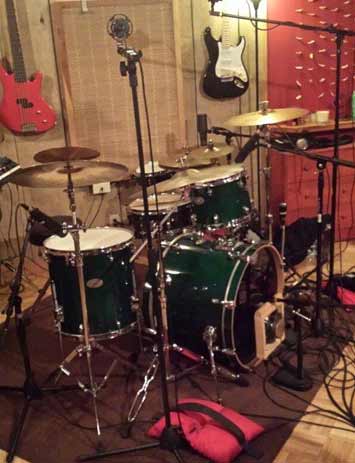 Recording Connection apprentice Dawnette Scolari is micing up the drum kit and getting sounds at ES Audio Recording Studio.
Recording Connection apprentice Dawnette Scolari is micing up the drum kit and getting sounds at ES Audio Recording Studio.
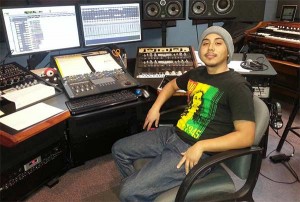 Recording Connection apprentice Paul Ramirez is smiling after nailing a country rock mix at Allusion Studios in Tucson, AZ.
Recording Connection apprentice Paul Ramirez is smiling after nailing a country rock mix at Allusion Studios in Tucson, AZ.
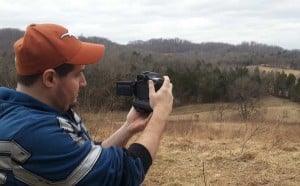 Film Connection student Matthew Gibson is shooting b-roll for the film Autism in America with Emmy-winning mentor Zac Adams!
Film Connection student Matthew Gibson is shooting b-roll for the film Autism in America with Emmy-winning mentor Zac Adams!
 Taylor Crommie is at Joombas Music Group in Hollywood, CA where he’s helping record K-Pop band Speed.
Taylor Crommie is at Joombas Music Group in Hollywood, CA where he’s helping record K-Pop band Speed.
 When it comes to learning from top music industry pros, you don’t get much better than Recording Connection mentor Mark Christensen. His many years in the music industry have given him experience on both sides of the aisle, so to speak—both on the studio side of music production and as a recording and touring label artist. In 1996, Mark established Engine Room Audio in New York City from the ground up. Today, Engine Room is one of the best and busiest recording and mastering studios in the world, servicing such clients as Trey Songz, 50 Cent, Kylie Minogue, The Killers, A$AP Rocky, The Ting Tings, Sia and a host of others. Even so, as busy as the Engine Room gets, Mark still takes a personal interest in passing his knowledge along, and personally mentors all the students we send to his studio.
When it comes to learning from top music industry pros, you don’t get much better than Recording Connection mentor Mark Christensen. His many years in the music industry have given him experience on both sides of the aisle, so to speak—both on the studio side of music production and as a recording and touring label artist. In 1996, Mark established Engine Room Audio in New York City from the ground up. Today, Engine Room is one of the best and busiest recording and mastering studios in the world, servicing such clients as Trey Songz, 50 Cent, Kylie Minogue, The Killers, A$AP Rocky, The Ting Tings, Sia and a host of others. Even so, as busy as the Engine Room gets, Mark still takes a personal interest in passing his knowledge along, and personally mentors all the students we send to his studio.
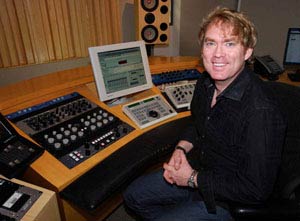 Under Mark’s mentoring, Recording Connection apprentices get plenty of opportunities to grow and connect to the industry while learning from the best, which is why the Engine Room is understandably one of our most in-demand mentor studios. In a recent conversation with RRFC, Mark talked about the advantages that apprentices have by learning on-the-job, and provided key insights into how students can make the most of those advantages.
Under Mark’s mentoring, Recording Connection apprentices get plenty of opportunities to grow and connect to the industry while learning from the best, which is why the Engine Room is understandably one of our most in-demand mentor studios. In a recent conversation with RRFC, Mark talked about the advantages that apprentices have by learning on-the-job, and provided key insights into how students can make the most of those advantages.
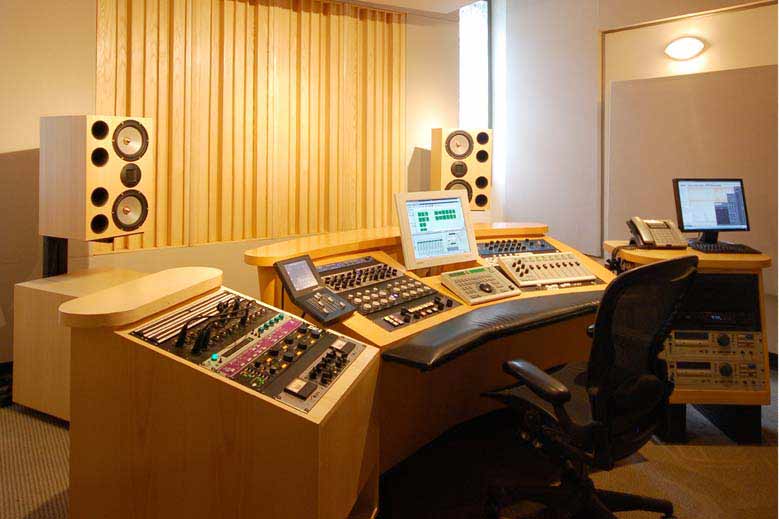 RRFC: What was it about Nacor as a student? What did he do that made you say, “I want to hire this guy when he’s done with the program”?
Mark: He just really spent a lot of time soaking up all of the material. He’s very self-motivated, spent a lot of time researching the various topics. We would study a particular topic in the class, then he would go off on his own and do a lot more internet research, do a lot of reading. It was clear that he was learning really quickly, and he had a really good command of all of the material…He was a responsible guy, really knew what he was talking about. He was just one of those kids that really was able to get a grasp on the reality of how to work on sessions.
RRFC: Any other standout students? What made them stand out?
Mark: Christian Albrizio is [also] good…He’s just another dedicated kid who was definitely willing to attend almost anything I suggested. He would just soak up whatever information he could. That’s a common trait [of successful students]. We send out these emails to the whole student list. We’ll be like, “Hey, there’s a tracking session on Saturday that you are welcome to attend if you want to.” It tends to be the kids who show up to almost everything you invite them to. They have that attitude of wanting to learn anything they can learn.
Audio engineering started out as an apprenticeship model, right? You learn to be an audio engineer almost the same way you learn to be a blacksmith. You have to hang out with the blacksmith and figure out how he does stuff. That’s how you become a good audio engineer, too. You have to be willing to put in the time.
RRFC: What was it about Nacor as a student? What did he do that made you say, “I want to hire this guy when he’s done with the program”?
Mark: He just really spent a lot of time soaking up all of the material. He’s very self-motivated, spent a lot of time researching the various topics. We would study a particular topic in the class, then he would go off on his own and do a lot more internet research, do a lot of reading. It was clear that he was learning really quickly, and he had a really good command of all of the material…He was a responsible guy, really knew what he was talking about. He was just one of those kids that really was able to get a grasp on the reality of how to work on sessions.
RRFC: Any other standout students? What made them stand out?
Mark: Christian Albrizio is [also] good…He’s just another dedicated kid who was definitely willing to attend almost anything I suggested. He would just soak up whatever information he could. That’s a common trait [of successful students]. We send out these emails to the whole student list. We’ll be like, “Hey, there’s a tracking session on Saturday that you are welcome to attend if you want to.” It tends to be the kids who show up to almost everything you invite them to. They have that attitude of wanting to learn anything they can learn.
Audio engineering started out as an apprenticeship model, right? You learn to be an audio engineer almost the same way you learn to be a blacksmith. You have to hang out with the blacksmith and figure out how he does stuff. That’s how you become a good audio engineer, too. You have to be willing to put in the time.
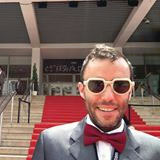 We’re going full throttle now, people! Fantastic news: Brian recently met with artist, engineer and movie score mixer Giorgio Piovan, and we’re delighted to announce that Giorgio will be mentoring a few very fortunate EDM students and future film composers in Los Angeles!
Brian also had a great meeting with radio personality Big Jay Sorensen, who is on-air at the world-famous WCBS-FM 101.1 in New York City. A pro with four decades in radio, we’re happy to say, Sorensen believes in our approach to getting people the in-industry, hands-on training they need to succeed. And yes–Big Jay Sorensen is now a Radio Connection mentor!
We’re going full throttle now, people! Fantastic news: Brian recently met with artist, engineer and movie score mixer Giorgio Piovan, and we’re delighted to announce that Giorgio will be mentoring a few very fortunate EDM students and future film composers in Los Angeles!
Brian also had a great meeting with radio personality Big Jay Sorensen, who is on-air at the world-famous WCBS-FM 101.1 in New York City. A pro with four decades in radio, we’re happy to say, Sorensen believes in our approach to getting people the in-industry, hands-on training they need to succeed. And yes–Big Jay Sorensen is now a Radio Connection mentor!

RRFC is education upgraded for the 21st century.
Get the latest career advice, insider production tips, and more!
Please fill out the following information, and RRFC Admissions will contact you to discuss our program offerings:
Stay in the Loop: Subscribe for RRFC news & updates!
© 2025 Recording Radio Film Connection & CASA Schools. All Rights Reserved.

